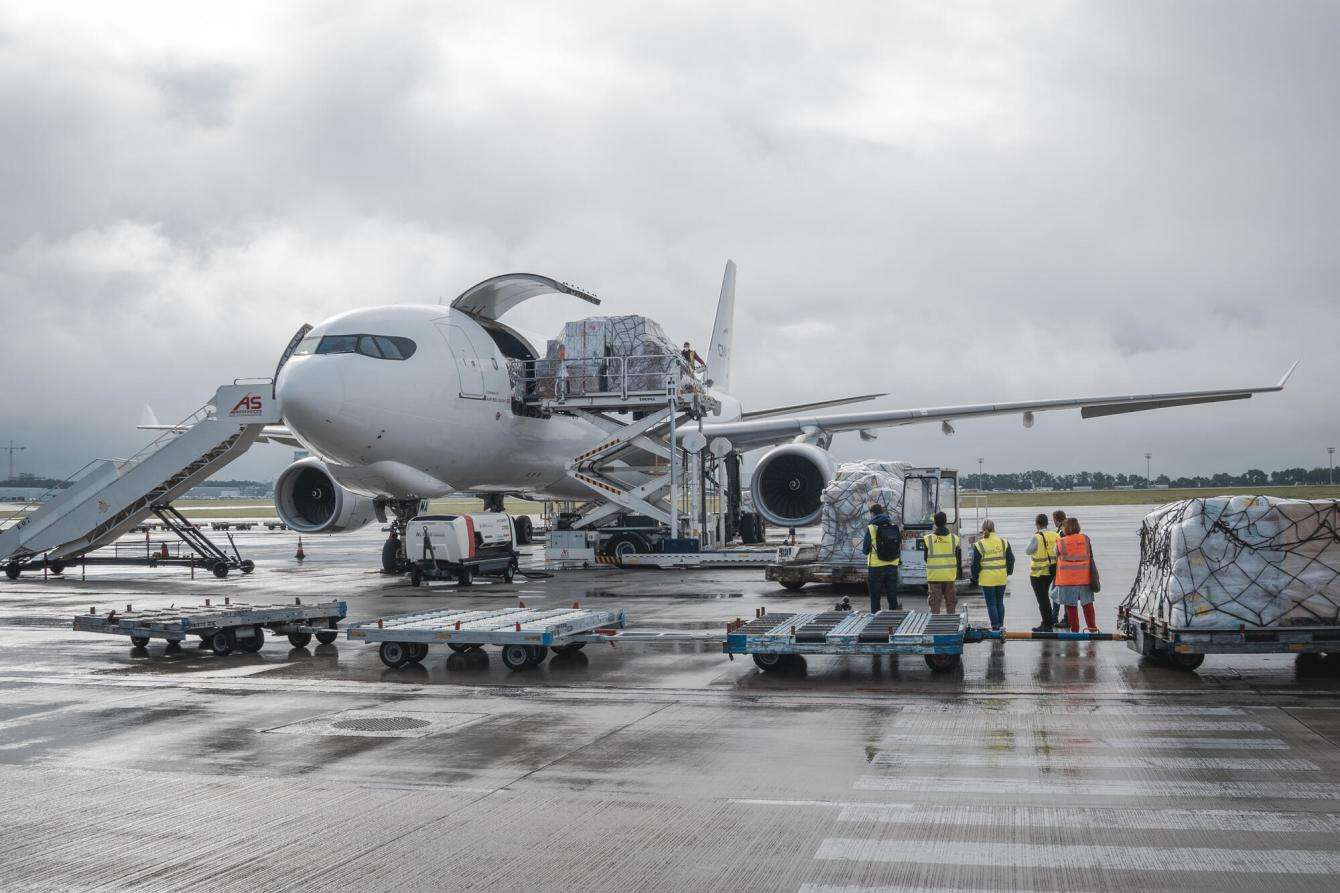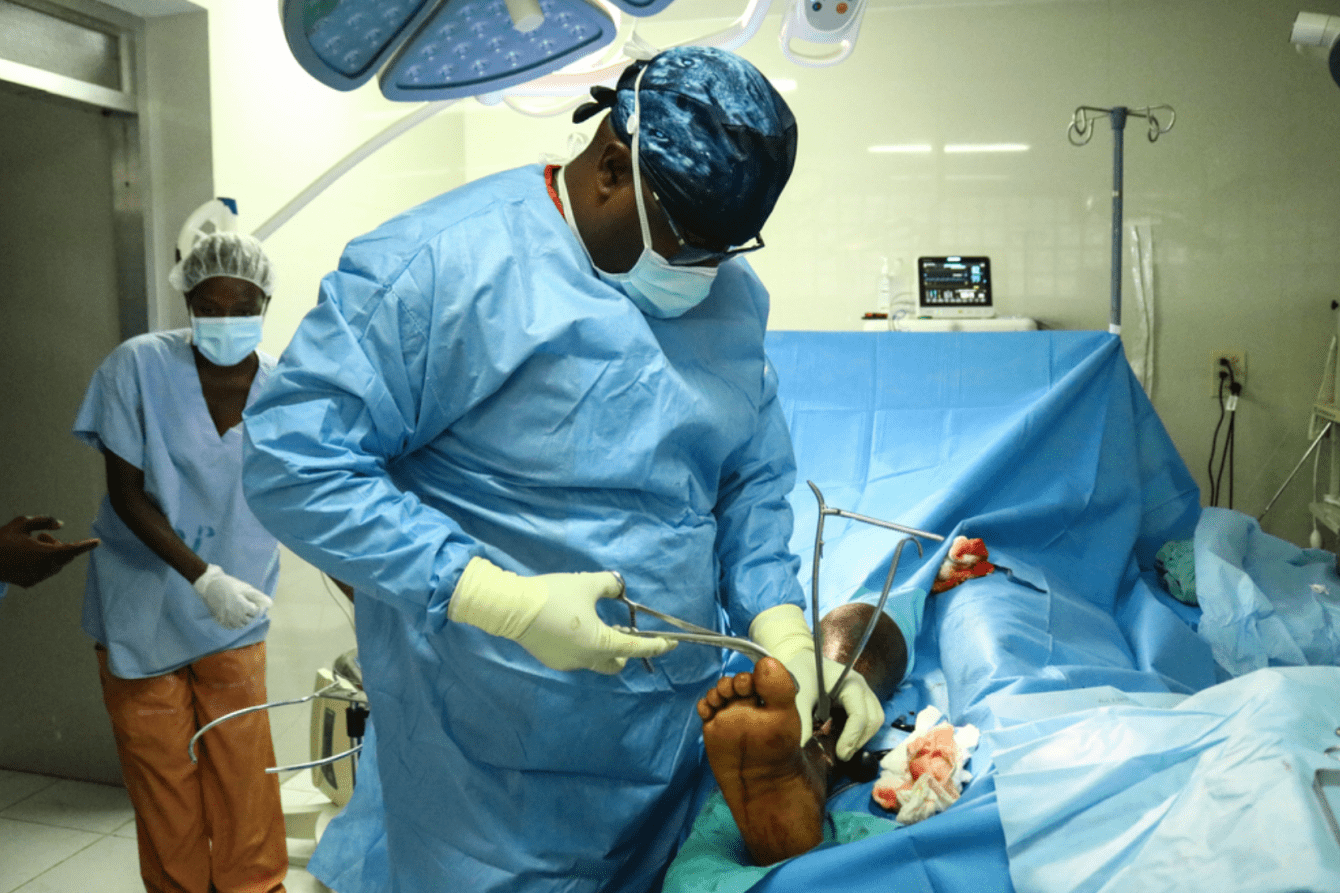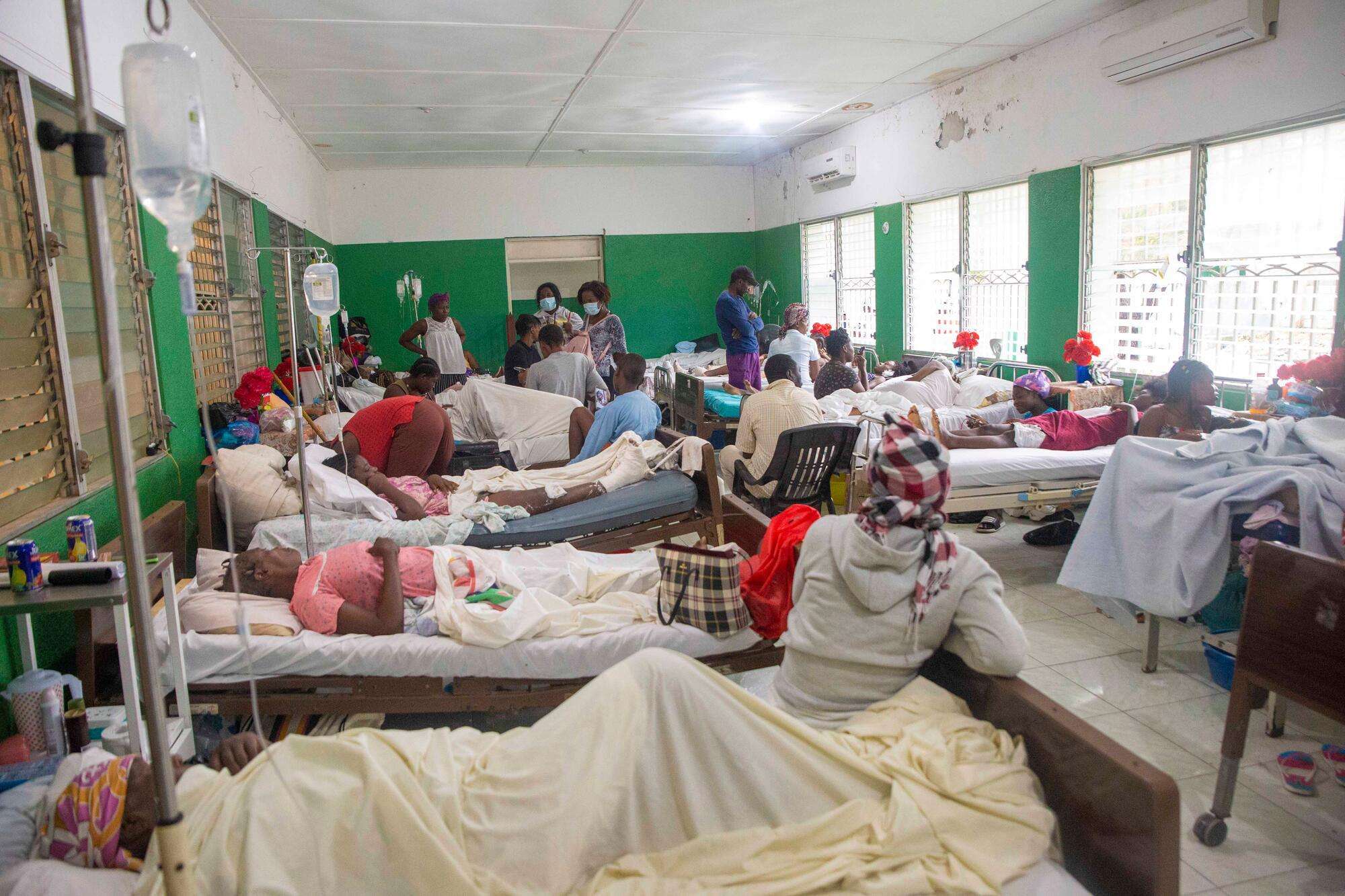Doctors Without Borders/Médecins Sans Frontières (MSF) is continuing to respond to the magnitude 7.2 earthquake that shook southern Haiti on Saturday, August 14 and provide medical care to people who have been injured. More than 1,260 Haitian and 100 international MSF staff are now working in Haiti to carry out mobile clinics, surgical interventions, basic medical care, and water and sanitation activities.
To help aid the response, MSF sent approximately 100 tons of medical and relief supplies to Haiti via two planes last weekend. The cargo included items for setting up emergency medical structures and offices for operations using tents, materials to install emergency drinking water supply systems for at least 30,000 people, and medical supplies for the care of 30,000 patients, including items for stabilization, first aid, vaccination, and blood collection.
MSF’s emergency response continues to expand in the southern peninsula, specifically the provinces of Grand’Anse, Nippes, and Sud, which were the areas worst affected. Staff working in Port-au-Prince—in Ouest province—have also treated dozens of injured patients brought to the capital from the earthquake zone.

The Haitian Civil Protection General Directorate (DGPC) says 137,000 families have been affected in the Grand'Anse, Nippes, and Sud provinces. According to the United Nations Office for the Coordination of Humanitarian Affairs (OCHA), approximately 650,000 people are in need of emergency humanitarian assistance. The provisional death toll is now more than 2,200, according to Haiti’s Office for Civil Protection, and more than 12,000 people have been injured as of August 22.
Landslides and flooding brought on by recent storms, including Tropical Storm Grace, have caused additional damage to areas where people are already struggling to access basic services like medical care. This has complicated rescue efforts by making more areas inaccessible and endangering tents and temporary structures being used for urgent medical care, aid, and shelter. Additionally, it has further isolated many municipalities in the affected areas from the rest of the country, making it difficult to get accurate death and injury counts.
In terms of infrastructure, nearly 53,000 homes were destroyed, and more than 77,000 homes were damaged in the three most affected provinces, according to Haiti’s Office for Civil Protection as of August 22. This has left thousands of people without shelter and critical structures like hospitals, schools, hotels, churches, and businesses. According to initial assessments by OCHA, 36 health facilities were damaged or destroyed by the earthquake. Many hospitals had to evacuate their patients, and the facilities that continue to function are overwhelmed and experiencing a lack of medical equipment and medicines.
MSF operations in Haiti
Responding to people’s needs in in Sud province
In the first hours after the earthquake, the MSF team based in Port-à-Piment and an emergency medical team from Port-au-Prince began assisting injured patients in Sud province. The hospital in Port-à-Piment where MSF runs a sexual and reproductive health project was damaged. The patients, most of them seeking maternity services, were evacuated to a tent where our team continues to provide care. In Port-à-Piment, MSF is also stabilizing and facilitating the referral of patients injured by the earthquake, including patients MSF has managed to evacuate from nearby Les Anglais, which is cut off from the rest of the province due to road damage.
In Les Cayes, the capital of Sud province, MSF has started surgical activities in the Hôpital Général des Cayes—also called L'Hôpital Immaculée Conception— along with logistical support. MSF is also running a mobile clinic, distributing essential non-food items, and performing water and sanitation activities in three communities serving 1,600 displaced households. Additionally, MSF has provided donations, such as tents and medical supplies, to various hospitals in Les Cayes to ensure continuation of medical activities.
In Port-Salut, an MSF team has received patients with injuries and fractures, including patients referred from Port-à-Piment, Les Anglais, and Les Cayes, and provided stabilization, surgical, and follow-up care. On the first day of the response, 26 patients were received at this location.
On Monday, August 23, MSF began running a mobile clinic to more remote communities, including Maniche, Camp Perrin, and Cavaillon, where people have less access to aid and health care and were most affected by the earthquake.
MSF has also provided donations of medical supplies to three health centers to help facilitate the stabilization and referral of patients in Les Anglais, Chardonnières, and Rendel.

Reaching people in remote areas of Nippes province
An MSF team arrived on August 15 in the department of Nippes and visited two locations. The first, the Sainte-Thérèse hospital in Miragoâne, received 59 wounded people, a number of whom were referred to Port-au-Prince for further care for open fractures. MSF provided supplies to the hospital, and an MSF surgeon and nurse are providing medical support. At the second location—the town health center of Petit Trou—MSF’s team saw more visible damage, including to the water system. Most people were staying outside, out of fear of further collapse of buildings, including hospital structures. The majority of medical consultations took place outside. MSF gave donations to the health center, and a water truck has been organized to travel to the city. On Monday, August 23, an assessment team started evaluations of 20 health centers damaged in the department of Nippes.
On August 17, MSF’s team moved to a third location in Nippes, Baradères, to assess the situation. The town is almost cut off from all routes, making it difficult to get aid and supplies to people who need them. Many families were observed sleeping outside near their demolished homes. There were also a few families attempting to build wooden structures. The hospital in Baradères had seen around 60 patients in the first two days after the earthquake, and around 15 were referred to St. Therese in Miragoâne for further treatment. The MSF team donated medical supplies and is trying to find ways to access areas cut off from aid due to landslides blocking the roads. On August 19, an MSF team returned to set up tents for temporary health care, as well as installed a water bladder at the Baradères Health Center to ensure continued water supply to the center and surrounding community.
On August 17, an MSF team assessed the hospital in L’Asil—Hopital Communautaire L’Asile—as well a hospital in Bonne Fin, both of which were damaged in the earthquake. At Bonne Fin hospital, all patients and staff were outside, with just one tent for hospitalized patients. MSF donated medical supplies to this facility. At Hopital Communautaire L’Asile, all medical activities were being conducted outside with the building half destroyed and not stable. In total around 50-60 people had been referred to other hospitals for follow up care following the earthquake. The MSF team donated medical supplies, as well as tents on August 19 to enable more people to be treated for medical issues, as well as installed a motor pump and a bladder to provide clean water to L'Asile community and the hospital.
Responding to people’s needs in Grand’Anse province
Some access routes, such as the road between Les Cayes and Jérémie, are seriously damaged, complicating the delivery of aid. MSF is moving supplies by sea and air due to the difficulties with the road. A medical team, including two surgeons and an operating room nurse, was able to travel to Jérémie on August 15 and began working in St. Antoine’s hospital, completing 10 surgeries in the last two days. As of August 20, the MSF surgical team in Jérémie has treated 54 patients for injuries suffered in the earthquake. Thirty-six of these patients underwent surgery, while others received casts or splints. MSF brought medical supplies, including sterilization material, for the medical facility. An MSF team also assessed needs in the hard-hit communities of Corail and Pestel, which are 80 percent destroyed, according to local authorities.

Stabilizing injured patients in Port-au-Prince, Ouest province
In Port-au-Prince, Haiti’s capital city, the earthquake fortunately did not damage infrastructure or buildings. However, injured patients from affected areas in the south of the country have come to the city for care.
MSF is treating injured people in our trauma hospital in Tabarre. As of August 23, the hospital staff have treated about 20 to 60 patients injured in the earthquake, 40 of whom were admitted and 20 of whom were treated and discharged or referred elsewhere. After the earthquake, the hospital broadened its criteria for admission and expanded its bed capacity from 50 to 69 beds for trauma patients, in addition to its 20 beds for burns patients.
On August 15, MSF began providing stabilization care to injured patients at a new emergency center in the Turgeau neighborhood of Port-au-Prince at the Integrated Diagnosis and Treatment Center, commonly known as the Sacré-Cœur Hospital, which originally was not scheduled to open until later in the week. Since opening, we have treated 133 earthquake victims from the southern peninsula and 152 other patients, as of August 22; 82 patients were referred to other hospitals for additional treatment.
To address potential blood shortages, MSF also launched a blood collection campaign in Turgeau on August 14 just hours after the earthquake, in partnership with local authorities.
MSF has been present in Haiti for more than 30 years. Our regular activities continue, including at the Tabarre hospital in Port-au-Prince, where MSF is treating patients with severe burns as well as people with life-threatening injuries. MSF also provides maternal and sexual and reproductive health care in Port-a-Piment in Haiti's Sud province and treats victims of sexual and gender-based violence in Port-au-Prince and Gonaïves. After more than 15 years, MSF was forced to close its emergency center in Martissant, Port-au-Prince, after an armed group fired on the facility on June 26, putting medical staff and patients at risk. Earlier in the year, MSF was forced to relocate its burns hospital from Drouillard to Tabarre due to insecurity.




